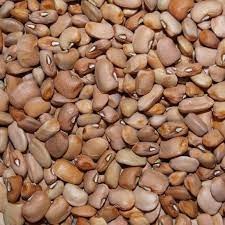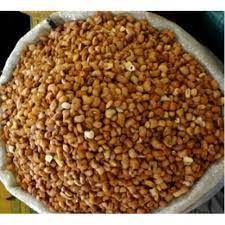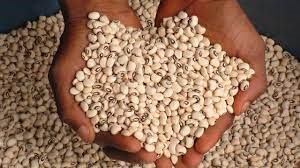Are Nigerian Beans a Carb or a Protein?
Presently, beans are one of the major staple foods in Nigeria. People eat beans whole or in processed forms such as bean flour soup (Gbegiri), bean cake (Akara), and bean pudding (Moi Moi). In like fashion, beans are also served in combination with other foods, such as beans and bread, beans and rice, beans and pap, and beans and garri.
Undeniably, Nigerians love beans because of both their taste and their nutrition. In fact, beans are considered a protein food in many households and national food guides. However, when you look at the nutrition label of beans, you will see a lot of carbs as well.
Many people are curious as to whether beans are a carbohydrate or protein food? Consequently, this article will address the question.
Varieties of Beans in Nigeria
Interestingly, beans are the 4th most consumed food in Nigeria after rice, yam, and cassava. On the whole, they are mainly grown in the northern part of Nigeria with Kano, Yobe, Zamfara, Sokoto, and Gombe recording the highest production rates.
Specifically, there are different varieties of beans sold in the market which include:
English Name: Honey beans
Local name: Ewa oloyin
Scientific name: Vigna unguiculata
Description
This is popularly called “Ewa oloyin” by the Yorubas. What’s more, it has a sweet taste and flavour when prepared and it is popular in western Nigeria for the preparation of “Ewa agoyin”, which is a type of mashed beans. Not to mention, it is divided into the big oloyin and small oloyin (pelebe).

English name: Brown beans
Local name: Ewa olotu
Scientific name: Vigna unguiculata (Linn) Walp
Description
Brown beans are considered a nutritious variety rich in protein. As well, this type is commonly referred to as “Ewa drum” or “olotu beans” by Yorubas. Brown beans can be consumed whole or added to rice dishes. Moreover, it is commonly used in making moi moi and beans porridge.

English name: White beans
Local name: Iron beans
Scientific name: Vigna unguiculata
Description
White beans promote health with their magnesium and antioxidant content. They can be enjoyed with stew, rice, or yam. In fact, this variety is readily available in local markets and is often referred to as “iron beans” because they take longer to soften when cooked.

Health Benefits of Nigerian Beans
-
Significantly, eating beans as part of a healthy diet may aid in weight loss. The soluble fibre in beans promotes a feeling of fullness by slowing down digestion. Additionally, protein intake can suppress hunger and keep you feeling satisfied after eating.
-
The fibre in beans is also good for digestive and gut health. Even more, the soluble fibre aids in regularity and frequency of bowel movements.
-
Surprisingly, eating beans is associated with lower Total Cholesterol (TC) and Low-Density Lipoprotein Cholesterol (LDL-C), commonly referred to as “bad cholesterol.” This is likely due to their soluble fibre content, which can prevent cholesterol from getting absorbed in the gut.
-
Beans have a low glycemic index, thus they have a minimal impact on blood sugar levels.
Nutrient Content of Cooked Nigerian Beans/100g
| Parameters | Oloyin | Drum | Sokoto white |
| Carbohydrate, g | 62.48 | 64.87 | 65.29 |
| Crude protein, g | 23.48 | 19.63 | 19.74 |
| Dietary fibre, g | 2.24 | 2.22 | 3.20 |
| Crude fat, g | 1.86 | 2.97 | 2.13 |
Are Beans a Carb or a Protein?
After looking at the table above, you may be thinking that beans being a protein food is a misconception. Although beans contain more carbohydrate than protein, beans are still a rich source of protein and this should not be forgotten.
In a similar way that nuts are included in the protein food group even though they have more fat than protein, beans are still considered a protein food by many. For the most part, natural foods are typically not just one macronutrient.
So go ahead and eat your beans as a healthy source of protein. However, consider the carbohydrate content if you are trying to watch your carb intake. This is particularly important if you have diabetes and take medications or insulin.
Conclusion
Beans are a staple in Nigeria, with three popular varieties: olotu, oloyin, and white beans. Eating beans as part of a healthy diet may be beneficial for gut and heart health, as well as weight loss.

An excellent write up worth reading. Thanks
Beans :)
The person wey write this thing no get sense.
Is beans protein or carbohydrate???
You no go school? They said it has 62g of carbohydrate and 23g of protein. So basically it has both but more carbohydrate than protein. 23 gram of protein is still a significant amount from one food source so we can say beans is a good source of protein in comparison to a lot of food.
My brother me self tire